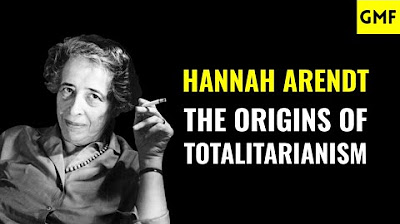The Road to Serfdom Book Summary
Summary
TLDRFriedrich Hayek critiques the rise of socialism and central planning in Western democracies, warning that it leads to the erosion of individual freedoms and can result in totalitarianism. He argues that socialism's promise of freedom is illusory, as it leads to coercion and the suppression of individuality. Hayek emphasizes the dangers of central economic planning, which he believes is incompatible with democracy, the rule of law, and individual rights. He traces these dangers historically, linking socialism to the rise of Nazism and warning of the totalitarian threat within modern democratic societies.
Takeaways
- 😀 Hayek warns that socialist policies in countries like America and Britain are following the same path that led Germany to totalitarianism.
- 😀 Hayek believes the abandonment of individualist traditions, which fueled prosperity and freedom in Western civilization, leads to the rise of socialism.
- 😀 Hayek critiques socialism as a false Utopia, promising freedom but ultimately creating equality in servitude and restraint.
- 😀 The conflict between individualism and collectivism is fundamental: individualism values personal autonomy, while collectivism subordinates the individual to state goals.
- 😀 Hayek challenges the idea that modern industrialization necessitates centralized economic planning, arguing that markets are more effective at coordinating people's activities.
- 😀 Central economic planning undermines democracy, as it concentrates power in the hands of state planners and erodes democratic processes.
- 😀 The rule of law is incompatible with central planning, which involves arbitrary, discretionary government actions rather than abstract, general rules equally applied to all.
- 😀 Hayek argues that economic control inevitably leads to totalitarianism, as centralized planning requires control over all areas of life, including speech and education.
- 😀 Under central planning, the system selects individuals based on political favor, turning truth into propaganda and promoting ruthless leaders who seek power over others.
- 😀 Hayek critiques the notion that sacrificing freedom for economic security leads to better outcomes, arguing that true economic security is found in a free market.
Q & A
What is Hayek's main concern regarding countries like America and Britain in the context of socialism?
-Hayek's main concern is that America and Britain, in pursuing socialist ideals, are following the same path that led Germany to totalitarianism. He believes this represents an abandonment of the individualist traditions that created the prosperity and freedom of Western civilization.
How does Hayek describe the success of classical liberalism in the early 20th century?
-Hayek describes the success of classical liberalism as leading to unprecedented levels of prosperity and freedom for the working class by the early 20th century. However, as social problems and inequalities remained, many grew impatient and sought to remake society through central economic planning, influenced by thinkers like Hegel and Marx.
What is the key difference between 'liberal freedom' and 'socialist freedom' as explained by Hayek?
-Liberal freedom is freedom from coercion, allowing individuals to make their own choices without interference. In contrast, socialist freedom is freedom from necessity, achieved through government-imposed limits on individual choices, leading to a system that enforces equality in servitude rather than liberty.
What conflict does Hayek identify between individualism and collectivism?
-Hayek argues that individualism and collectivism are fundamentally incompatible. Individualism treats people as distinct individuals with their own goals, while collectivism subordinates the individual to the society’s goals as defined by the state, often through force.
Why does Hayek argue that central economic planning is not inevitable?
-Hayek argues that central economic planning is not inevitable because it rests on a misunderstanding of how markets work. While specialization creates interdependence, free market competition is a more effective way to coordinate people's activities, making use of dispersed, localized knowledge.
What is Hayek's critique of economic planning and democracy?
-Hayek explains that economic planning is incompatible with democracy. As the complexity of planning becomes apparent, democratic processes become impotent, and calls arise for leaders to act without democratic constraints. Planning requires granting coercive power to fallible humans, undermining democratic principles.
How does Hayek view the relationship between planning and the rule of law?
-Hayek contends that central planning is incompatible with the rule of law. The rule of law requires fixed, abstract rules that apply equally to all, allowing individuals to plan their own affairs. In contrast, economic planning involves discretionary government actions that select specific individuals or groups, undermining the concept of the rule of law.
What does Hayek mean when he says that economic control leads to totalitarianism?
-Hayek argues that economic control inevitably leads to totalitarianism because economic planning touches all aspects of life. To effectively plan the economy, the state must also control speech, assembly, education, and other areas, gradually leading to totalitarian control over society.
How does Hayek explain the rise of opportunists in a collectivist system?
-Hayek explains that under central planning, advancement depends on political favor rather than merit or economic usefulness. This attracts ruthless, amoral individuals who seek power, as the system tends to favor those eager to exploit the state's coercive power.
What is Hayek's view on the trade-off between security and freedom?
-Hayek critiques the argument that economic security requires sacrificing freedom. He believes that true economic security comes from the opportunities provided by a free market, not from a system that forces individuals into predetermined work assignments, which he equates to slavery.
Outlines

Dieser Bereich ist nur für Premium-Benutzer verfügbar. Bitte führen Sie ein Upgrade durch, um auf diesen Abschnitt zuzugreifen.
Upgrade durchführenMindmap

Dieser Bereich ist nur für Premium-Benutzer verfügbar. Bitte führen Sie ein Upgrade durch, um auf diesen Abschnitt zuzugreifen.
Upgrade durchführenKeywords

Dieser Bereich ist nur für Premium-Benutzer verfügbar. Bitte führen Sie ein Upgrade durch, um auf diesen Abschnitt zuzugreifen.
Upgrade durchführenHighlights

Dieser Bereich ist nur für Premium-Benutzer verfügbar. Bitte führen Sie ein Upgrade durch, um auf diesen Abschnitt zuzugreifen.
Upgrade durchführenTranscripts

Dieser Bereich ist nur für Premium-Benutzer verfügbar. Bitte führen Sie ein Upgrade durch, um auf diesen Abschnitt zuzugreifen.
Upgrade durchführen5.0 / 5 (0 votes)






